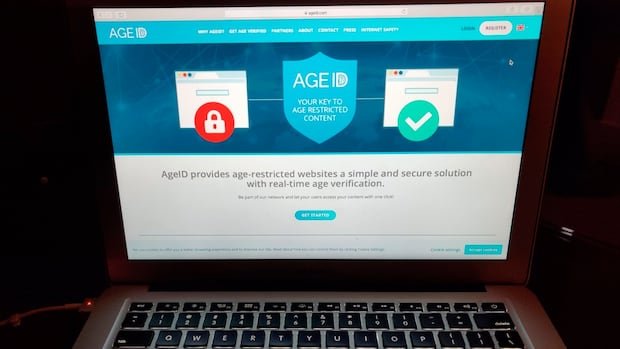Richard Rogerson, a cybersecurity expert based in Ontario, was unexpectedly required to verify his identity by a children’s online gaming platform last month. While his three children were playing the Roblox game Murder Mystery, the platform prompted them to enter a parent’s email address for permission to update their content maturity setting. To continue playing, they needed to switch the setting from “Mild” to “Moderate.”
The platform requested Richard Rogerson to provide his birthday and verify his age using either a government-issued ID or a credit card. Reluctant to upload his ID due to concerns about data security, Rogerson decided against it, leading to his children having to give up playing Murder Mystery.
With the rise of online age verification systems globally, driven by new regulations to safeguard children from certain content, concerns over privacy have emerged. The U.K.’s Online Safety Act, which recently went into effect, mandates age gates for material like pornography, necessitating users to confirm their age using various forms of identification, triggering backlash.
Major platforms like YouTube are also adopting age verification systems, with plans to analyze users’ browsing behavior to determine age before requesting additional verification. Rogerson, the founder of cybersecurity firm Packetlabs, highlighted the widespread implementation of such measures.
Regarding data breaches, Rogerson emphasized the importance of restricting minors from accessing certain content while stressing the need to address privacy and security issues. Concerns arise as many companies rely on third-party verification systems, leaving users uncertain about data security in case of a breach.
In Canada, privacy laws have been a topic of discussion, with Rogerson advocating for stronger regulations to protect citizens from data breaches. While the U.K.’s General Data Protection Regulation offers robust privacy safeguards and penalties, Canada’s progress in modernizing online privacy laws has been slow, with proposed legislation facing delays.
Users face a dilemma regarding age verification requirements, especially when faced with unclear privacy policies. Cliff Steinhauer, from the National Cybersecurity Alliance, highlighted the need for safeguards around age verification systems, including data deletion after age verification.
As countries worldwide implement age verification laws and social media bans for minors, the debate continues on the necessity and effectiveness of these measures. Advocates like Jacques Marcoux from the Canadian Centre for Child Protection stress the importance of age verification laws in protecting children from harmful online content, despite the challenges in enforcement.
The push for online age verification laws reflects a growing concern over children’s unrestricted access to potentially harmful online material, prompting calls for improved safeguards and responsible website operator behavior.

